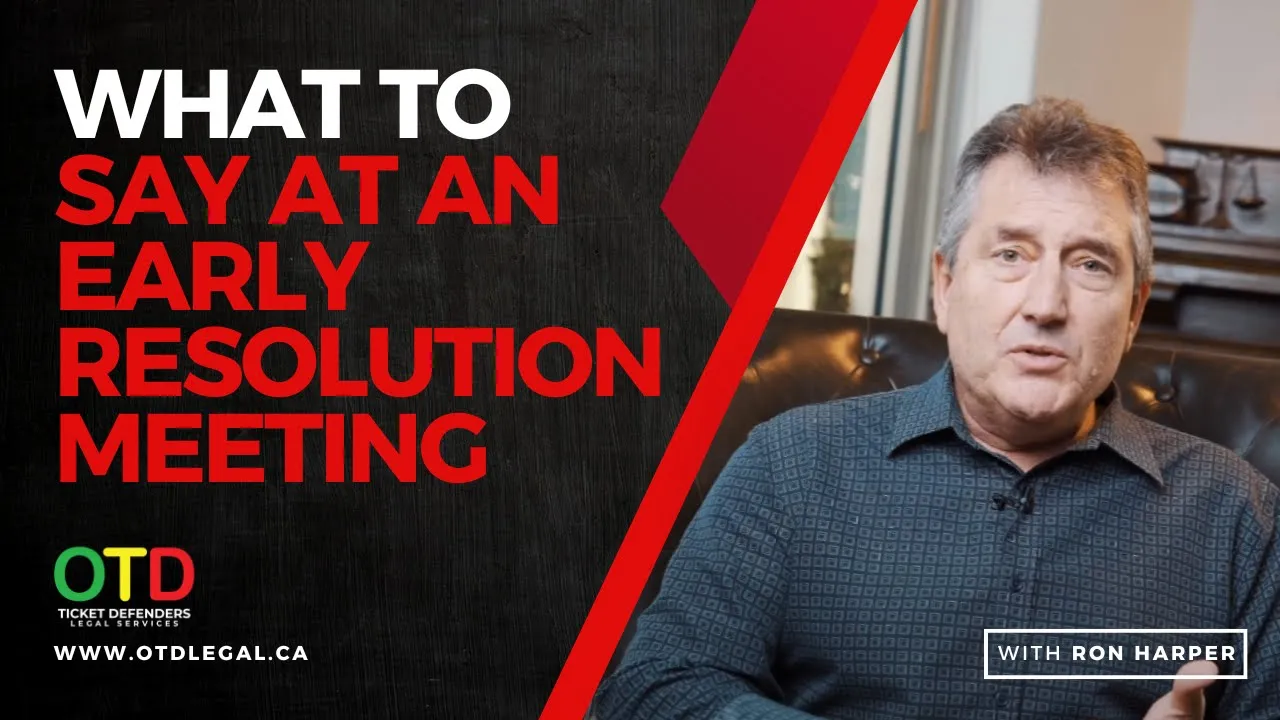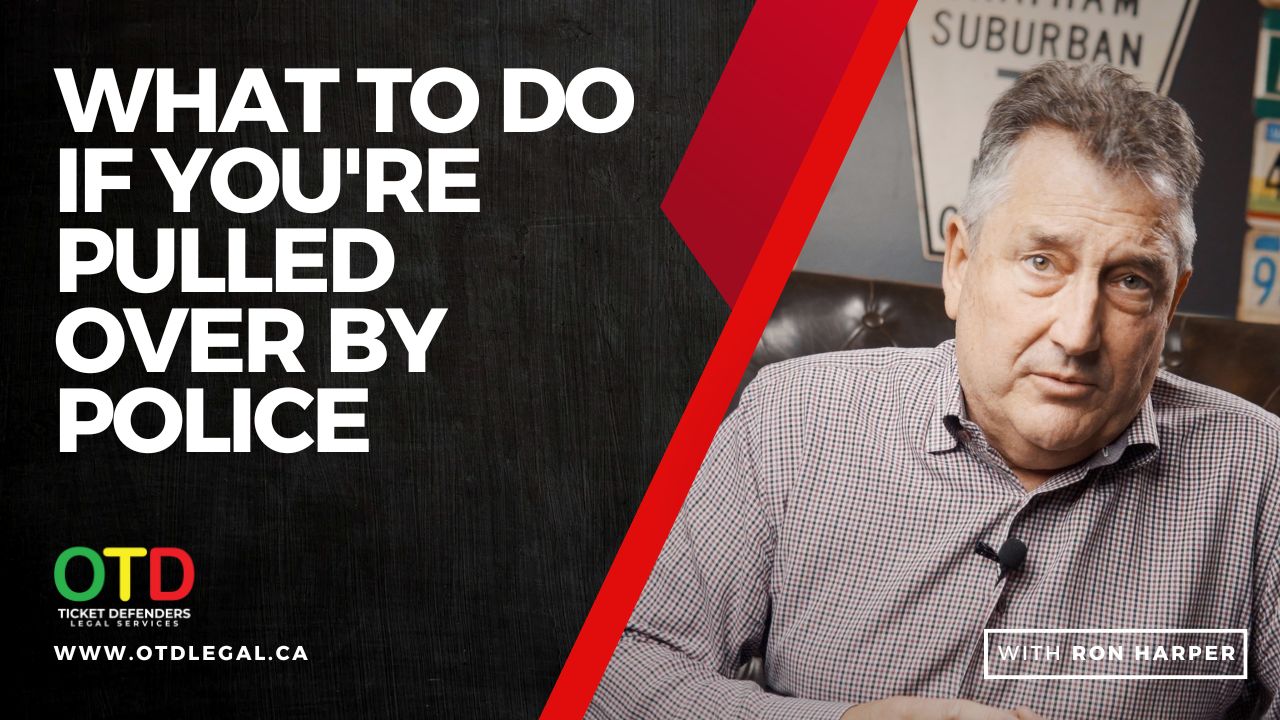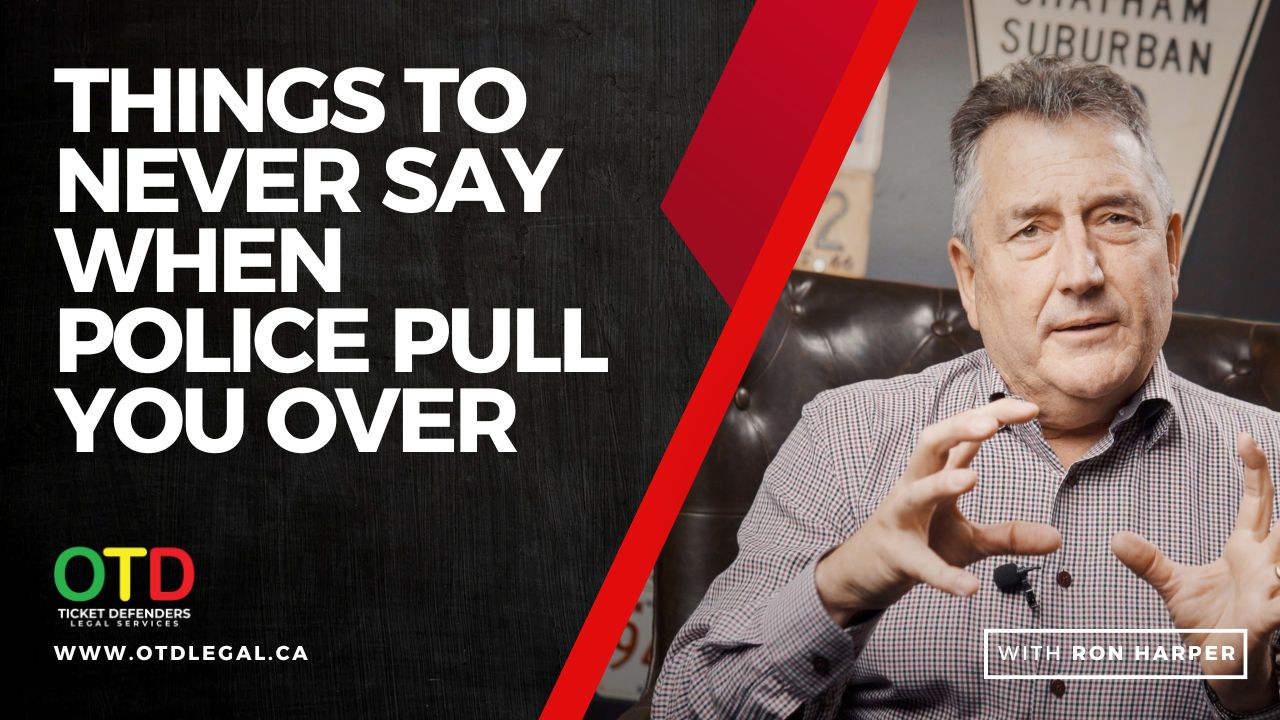Receiving a careless driving ticket for driving “without due care and attention” in Ontario is more than just a traffic citation, it’s a serious legal matter with long-lasting effects on your licence, insurance, and livelihood.
- Careless driving refers to falling below the standard of a reasonable, prudent driver; not necessarily reckless behavior, but any lapse in judgment or attention.
- Penalties include fines up to $2,000, six demerit points, potential licence suspension, and major insurance hikes.
- Common causes include distracted driving, unsafe lane changes, speeding for conditions, or failing to yield, even momentary lapses can result in charges.
- An accident is not required for a charge, but collisions often lead to one, especially if fault is unclear.
- This is distinct from dangerous driving, which is a criminal offence, but careless driving can still seriously affect your driving and employment status.
Concerned about how this ticket could affect your future? Read the full article to understand your rights, the legal definitions, and how to build a strong defence.
The flashing lights in your rearview mirror are gone, but now you’re holding a ticket for ‘Careless Driving.’ It’s a vague and unsettling charge that leaves many Ontario drivers feeling confused and anxious. You might be wondering if a simple mistake could now jeopardise your licence, your insurance rates, and even your livelihood. Or worse yet, you may have been informed by the police officer that the ticket is no big deal, and told that you should just pay it.
If you’ve received a careless driving ticket, you’re not alone, and you’re right to be concerned about the implications. This comprehensive guide will demystify the charge, explain what “without due care and attention” actually means under Ontario law, and show you the path forward to protect your driving record and financial future.
The Serious Consequences You’re Facing
Before diving into legal definitions, let’s address what’s really at stake. A careless driving conviction in Ontario isn’t just a minor traffic ticket, it’s a serious provincial offence that can have lasting consequences on your life.
Under Section 130 of the Highway Traffic Act, careless driving penalties include fines ranging from $400 to $2,000, six demerit points on your licence, and potential licence suspension of up to 2 years. More concerning for most drivers is the impact on insurance premiums, which can increase by 25-50% and remain elevated for years. In combination with an at-fault accident, a careless driving conviction could cause your insurance company to consider you a high-risk driver, increasing your insurance rates beyond what most people can afford.
For commercial drivers, a careless driving conviction can threaten your livelihood directly. Many employers have zero-tolerance policies for serious traffic convictions, and CVOR implications can be severe. You are very likely to lose your existing job as a professional driver, and finding new employment would be nearly impossible with a careless driving conviction.
The stakes become even higher if your careless driving charge involves bodily harm or death, as these cases carry potential jail time and licence suspension up to five years.
What Does ‘Careless Driving’ Mean in Ontario?
The Legal Definition Under the Highway Traffic Act
Section 130 of Ontario’s Highway Traffic Act states that you’re guilty of careless driving if you operate a vehicle “without due care and attention or without reasonable consideration for other persons using the highway”.
This seemingly simple definition contains two distinct ways you can be found guilty:
- Without due care and attention – This focuses on your level of focus and adherence to driving standards
- Without reasonable consideration – This examines how your driving affects other road users
The phrase “without due care and attention” is particularly significant because it sets an objective standard that doesn’t consider your intentions or driving experience.
The Reasonable Driver Standard
Ontario courts apply what’s called the “reasonable driver” or “average careful driver” test. This means your driving is measured against what an ordinary, prudent driver would do in the same circumstances, not against perfection, but against reasonable competence.
The standard is both constant and dynamic. While the legal expectation remains the same, the factual application changes based on road conditions, weather, visibility, traffic, and other circumstances that would influence a reasonable driver’s behaviour.
Importantly, courts have recognised that “momentary inattention or simple error of judgment” isn’t automatically careless driving. Your conduct must represent a “sufficient departure from the standard of a prudent and reasonable driver” to warrant conviction.
How It Differs from Dangerous Driving
This distinction is crucial for understanding your charges and potential penalties. Careless driving is a provincial offence under the Highway Traffic Act, while dangerous driving is a criminal offence under the Criminal Code of Canada.
Careless Driving (Provincial):
- Handled in provincial offences court
- No criminal record if convicted
- Focus on failing to meet reasonable driving standards
- Penalties include fines, demerit points, licence suspension
Dangerous Driving (Criminal):
- Handled in criminal court
- Creates a criminal record
- Requires proof of intention of driving at a marked departure from reasonable driving standards
- Can result in jail time, driving prohibition, criminal record
The key difference lies in the intention of the driver. Dangerous driving involves knowing the risk of harm to others, while careless driving involves an error or inattention while driving.
Common Examples of Careless Driving
The Two Ways You Can Be Found Guilty
Understanding what constitutes “without due care and attention” becomes clearer when you see real-world examples. Ontario police commonly lay careless driving charges for:
Distracted Driving Behaviours:
- Using handheld electronic devices while driving
- Eating, drinking, or personal grooming behind the wheel
- Adjusting entertainment systems or GPS devices that affects driving behaviour
- Being distracted by passengers or events outside the vehicle
Attention and Judgment Failures:
- Following too closely (tailgating)
- Unsafe lane changes without proper signalling or checking blind spots
- Failing to yield right-of-way to pedestrians, cyclists, or other vehicles
- Driving too fast for conditions (even within posted speed limits)
- Losing control of your vehicle due to excessive speed in curves
Impact on Other Road Users: Remember, the second part of the definition focuses on “reasonable consideration for other persons using the highway.” This means actions that endanger, inconvenience, or fail to consider other drivers, pedestrians, or cyclists can result in charges, even if you were paying attention.
When Accidents Lead to Charges
It’s important to understand that you can be charged with careless driving even without an accident. However, when an accident occurs, police often use it as evidence that careless driving took place.
The key principle is that an accident itself doesn’t prove careless driving, the prosecution must demonstrate that your driving behaviour fell below reasonable standards. However, in accident cases, your defence may include proof that you exercised reasonable care.
Why You Shouldn’t Face This Charge Alone
Careless driving may seem straightforward, but successfully defending these charges requires understanding complex legal standards and court procedures. The “reasonable driver” test involves subjective interpretation that experienced legal professionals know how to challenge.
Professional legal representation can make the difference between a conviction that haunts you for years and a successful defence that protects your record. Consider these factors:
Complex Legal Standards: What constitutes “reasonable” behaviour isn’t always obvious, and prosecutors must prove their case beyond subjective opinion.
Evidence Analysis: Experienced paralegals know how to examine police reports, witness statements, and technical evidence for weaknesses in the Crown’s case.
Negotiation Opportunities: Many careless driving charges can be reduced to lesser offences with lower penalties and insurance implications.
Court Procedure: Understanding your options and navigating the court system effectively requires knowledge that most drivers simply don’t possess.
At OTD Legal, our team has over 80 years of combined experience defending traffic charges across Ontario. We understand that a careless driving charge represents more than just a ticket, it’s a threat to your mobility, your finances, and your peace of mind.
Your Top Questions About Careless Driving Answered
Q: Can I just pay the ticket and move on? A: While paying the ticket might seem like the easiest option, it means pleading guilty to a serious offence. This results in an automatic conviction, demerit points, and insurance consequences that can cost you thousands over time. For novice drivers, there will also be a licence suspension or cancellation. Before making this decision, consider getting a free consultation to understand your options.
Q: What if I was distracted for just a moment? A: Even momentary distraction can result in careless driving charges if it leads to unsafe behaviour or an accident. However, courts recognise that brief lapses don’t automatically constitute careless driving. The key is whether your action represented a sufficient departure from reasonable driving standards. An experienced paralegal can help evaluate the strength of the case against you.
Q: How long will a careless driving conviction affect my insurance? A: Insurance companies typically consider careless driving convictions for three to six years when calculating premiums. The impact varies by insurer, but increases of 25-50% are common. Some drivers even face policy cancellation, forcing them into high-risk insurance markets with dramatically higher costs.
Q: What’s the difference between fighting the ticket myself and hiring professional help? A: While you have the right to represent yourself, traffic law is complex and prosecutors are experienced legal professionals. Professional representation provides knowledge of legal procedures, experience in negotiating with prosecutors, and understanding of technical defences that could result in reduced charges or dismissal.
Key Takeaways
“Without due care and attention” refers to driving that falls below the standard of an ordinary, prudent driver in similar circumstances. It’s an objective test that doesn’t consider your intentions, only your actions and their reasonableness.
Careless driving is a serious provincial offence in Ontario with significant financial and practical consequences. Unlike minor traffic tickets, it carries substantial fines, demerit points, and insurance implications that can affect you for years.
The charges can result from various behaviours including distracted driving, unsafe manoeuvres, or failing to consider other road users. You don’t need to cause an accident to be charged, though accidents often trigger these charges.
Professional legal assistance isn’t just recommended for careless driving charges, it’s often essential for protecting your driving record, your insurance rates, and your financial future.
Take Action to Protect Your Future
If you’re facing a careless driving charge in Ontario, time is critical. Contact OTD Legal today for a free consultation. Our experienced team will review your case, explain your options, and fight to protect your driving record and your wallet.
Don’t let a momentary mistake derail your future. With the right legal representation, you can face this charge with confidence and work toward the best possible outcome for your situation.







